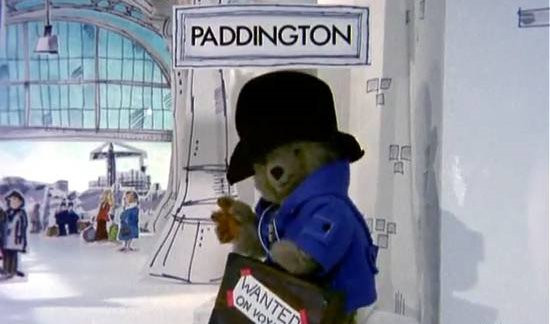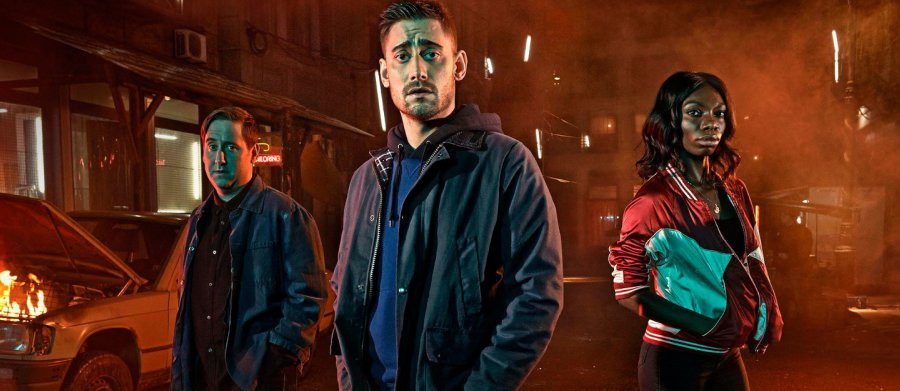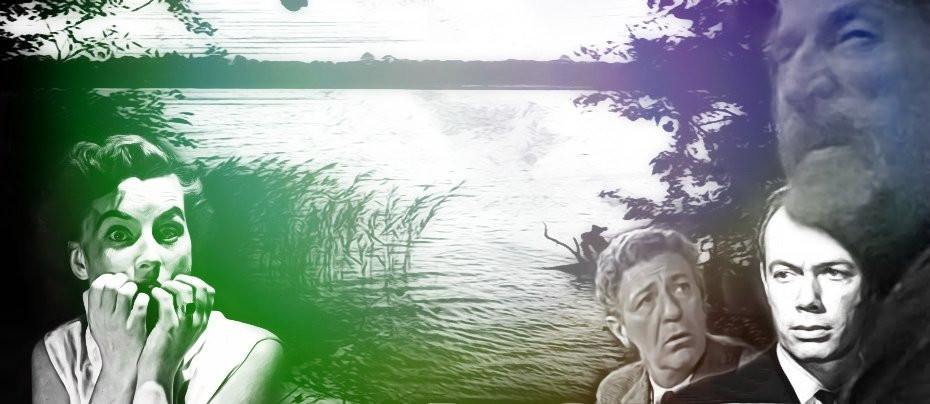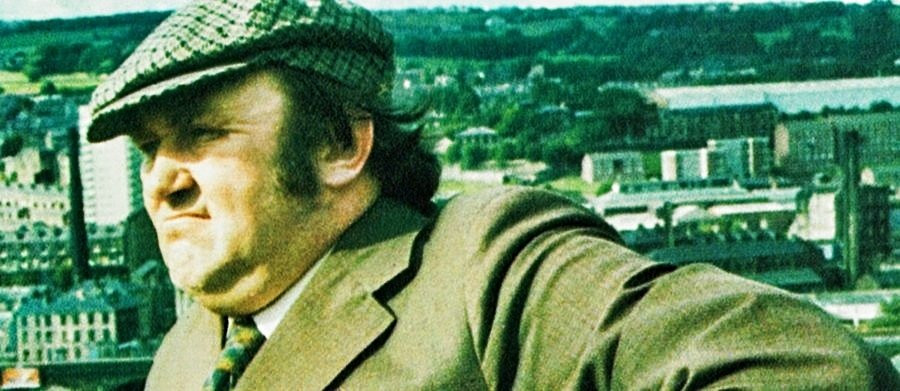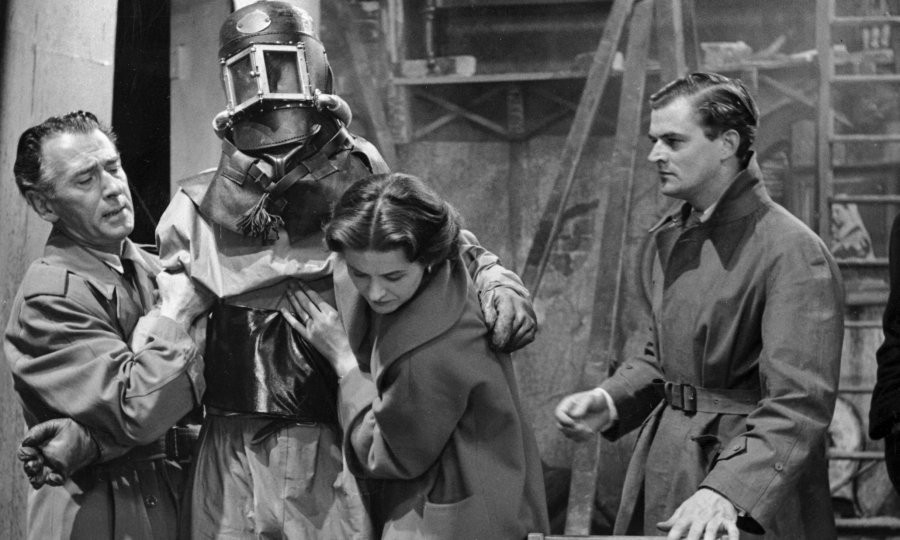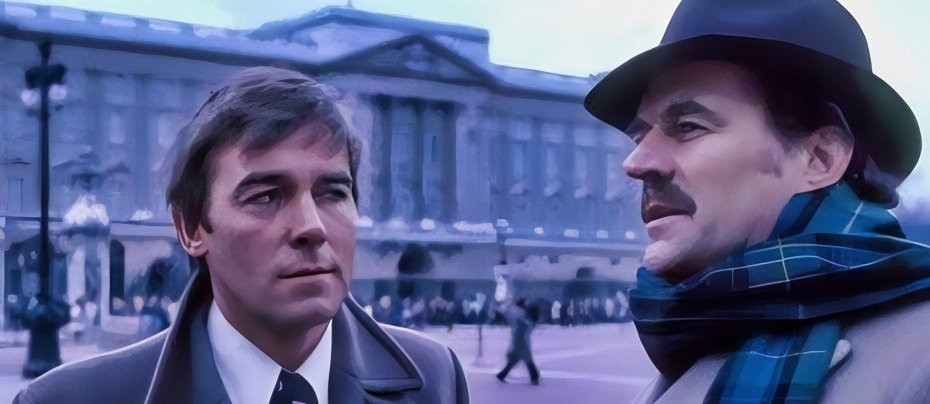
Survivors
1975 - United KingdomInspiration for Survivors came, according to series creator Terry Nation, from the realisation that he -in fact everyone in modern society, had become totally reliant on technology. "I was aware of how little I knew." He said in a 1992 interview. "If I had to make an axe I wouldn't know how take the ore from the ground, turn it into iron and make an axe head. So in a way I, who live in an era where we've landed men on the Moon, am actually more primitive than stone-age man."
This was the inspiration for his 1975 series in which a virus had wiped out 95 per cent of the world's population in just a few weeks, leaving the remaining 5 per cent to stay alive in a world devoid of the most basic things we take for granted -electricity, transport, medicine for example, and the few survivors of the human race are forced to fall back on the most primitive skills in order to live and re-establish some semblance of law and order.
Avoiding the trappings of clichéd science fiction, the story begins with a series of images in the opening credits that set the scene for the entire three series. A scientist drops a test tube and then a montage of planes and passport stamps illustrate how the deadly plague is spread around the world. By the credits end we are placed quite firmly in the middle of the nightmare, which we share with secretary Jenny Richards, upper class Abby Grant, self interested scrounging poacher Tom Price and -from episode two onwards, engineer Greg Preston.
"Those who survived were either genetic freaks because they had come through it," said Nation -"or they were terrified because they hadn't come into contact with it yet. You couldn't go into the cities because the moment the dead became more numerous than the living, they stayed where they fell, and the cities became terrible cess-pits that you couldn't go into." Another problem facing the survivors was a food famine. "All the frozen food we lived on was gone within a week the moment the electricity quit." It wouldn't be long before petrol supplies were also diminished.
"I wanted to see a world under those circumstances, and that's what the show was about. It wasn't about boy scouts learning to survive for three days in the woods. It was about people learning how to survive for the rest of their lives."
Of all the characters in the first series it is Abby who turns out to be the most resilient. This was a deliberate ploy by Nation who was conscious that there were very few strong female leads on television at that time. "She is driving around her village and there's nothing -just parked cars on the side of the road, and the people she knows are sitting in them dead. She finally goes to the church, she goes inside, and near the altar are ten or twelve dead people. She comes out and she stares up at heaven and says, 'Dear God, don't let me be the only one!' Then she begins to change."
In this first two episodes the principal characters find each other as they wander round derelict towns and villages searching for food, shelter and other survivors. By episode eight they have found a small farm and have been joined by a group that included wheelchair-bound Vic Thatcher, financier Arthur Russell, and ex-commune dweller Paul Pitman. The second half of the series concentrates on this band of survivors having to learn to live with, and rely on each other.
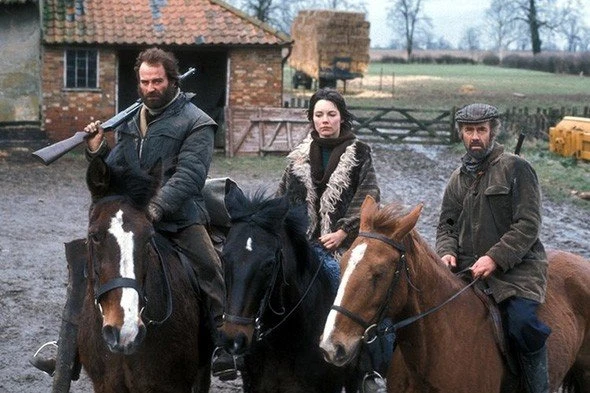
By the end of series one tension's between series creator Terry Nation and series producer Terence Dudley had reached breaking point. Dissatisfied with the direction the series was taking it was Nation who walked out. "He (Dudley) wanted to get the electricity turned back on by the third episode. Finally, I couldn't handle it. I was gone, and was terribly disappointed by the way the show went." Said Nation. Another problem arose when actor Terry Scully, who played Vic, had a nervous breakdown during filming and had to be replaced by another actor.
Press reaction to the series was mixed. The Observer felt that 'Doctor Who was more adult' whilst The Evening News thought the series 'made the Daleks look like Wombles.' The Daily Mail said it was 'well thought out, but banal' but The Financial Times said the series was 'credible, professional and worrying!" Viewers reaction though was far more positive judging by the letters column in the Radio Times.
Before season two started Carolyn Seymour (Abby) decided to move on, leaving the series without one of its strong lead characters. There were further complications when the recording location was no longer available and as a result, season two opens with a fire which claims the lives most of the supporting cast. Location filming moved on to Callow Hill in Monmouthshire where a real life self-sufficient commune was living. However, the commune soon found the BBC's OB team too intrusive and they were asked to leave.
Season three was shorter than the previous two running out at only 12 episodes. Pennant Roberts who worked as director on the series felt that by that time the show had become too 'soapy'. Years later he also became sceptical of the series ability to stand up to more sophisticated productions. Yet fans of the series remember it with great fondness as one of the better dramas of the period.
If Terry Nation had got his way Survivors wouldn't have ended there. "I came very close to doing it in the United States," he said. "We were so close to getting it on one occasion, and then the AIDS virus reared it's head, and everyone was terrified to do anything with it. They didn't want to be associated with it, but I think it would be a wonderful story to do in the US. A good story is a good story."
Seen this show? How do you rate it?
Seen this show? How do you rate it?
Published on February 5th, 2019. Written by Laurence Marcus (9th May 2004) for Television Heaven.


